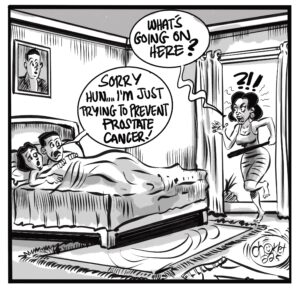Bold employees should sue government over the political directive to reduce their salaries because it is against the law, says Civil Servants and Allied Workers Union of Zambia (CSAWUZ) president Davies Chiyobe.
Last month, President Edgar Lungu announced the reduction of his salary and that of his Cabinet between a range of 15 and 20 per cent saying this was meant to cushion the vulnerable, given the rising cost of living after both fuel and electricity prices were hiked.
According to President Lungu’s Special Assistant for Press and Public Relations Isaac Chipampe, this directive was extended to the parastatals.
“His Excellency Dr Edgar Chagwa Lungu has announced the reduction of his salary and that of his Cabinet between a range of 15 and 20 percent. The President has also directed the Secretary to the Cabinet to cascade the directive to all non-unionized public officers, including parastatal executives. The slashing of salaries of highly paid public officers in both government and the parastatal sector is aimed at cushioning the impact on citizens arising from the increase on fuel prices and electricity tariffs announced by the Energy Regulation Board (ERB),” announced Chipampe.
But in an interview, Chiyobe said such a directive could not legally stand in the absence of consensus.
“People cannot just act on the Presidential directive. You cannot just reduce the employee’s salary. Any employee affected has the right to ligate and go to court and say ‘I am not agreeing’. The directive is a political directive and the other is labor related. In parastatal companies there are serious contracts in writing which spell out the condition of service. If an employee is aggrieved and says he is not agreeing, then you should realize that a grievance has started, a conflict has started. If they say they don’t want their salaries to be reduced, are you going to force them by them not agreeing? Those that have courage may want to go to court but on the government side, due to the relationship of fear, they might not want to challenge their employer. But the bold may arise and go to court!” Chiyobe exclaimed.
“The Secretary to the Cabinet is aware of what the law says pertaining the reduction of salaries. If the employee doesn’t abide, the employee can stop work and fight and say that ‘my conditions of service have been changed’. People have left on those grounds and they have been compensated. As a labor movement, we are waiting to see how that directive will come to the public service and we will look at the circular and we will say‘this is what the law is providing, are you not contravening the law?’ So we haven’t seen that circular yet and we are sending signals that that directive is contravening.”
And Chiyobe warned that reducing salaries without employees’ consent might result in chaos.
“Yes, the employer can say ‘it is me who gave you this salary’. When it is given, it becomes part of the contract because they are not unionized. It doesn’t work like that, there would be chaos. As matters stand now, it is clear that the directive on the public service cannot apply unless they are engaged and willingly, they agree. Looking at the salaries at deputy directors level and above, their salaries were frozen for almost five years, they have not been receiving any increment so again to have the directive to reduce their salaries…where are they going to be? They have also set standards and anything less will compromise their position of their conduct in society so measurably, you cannot say ‘he is getting so much and we need to reduce’. They play big roles which can risk inefficiency and they start being corrupt. They can get so desperate such that they can depend on corruption for survival. All in all, their salaries are protected by the law you cannot reduce them,” said Chiyobe.

























One Response
How much ve they raised from these cuts and were re they going to use this money from, Diggers find out for us..